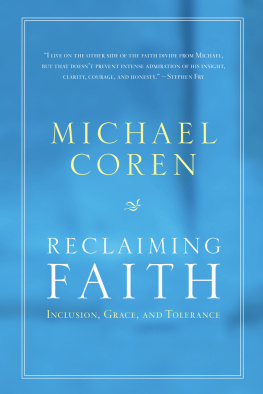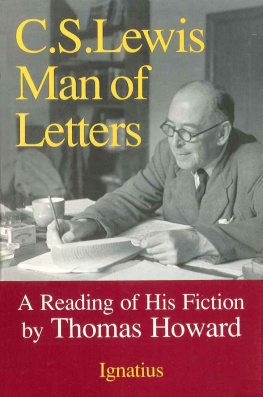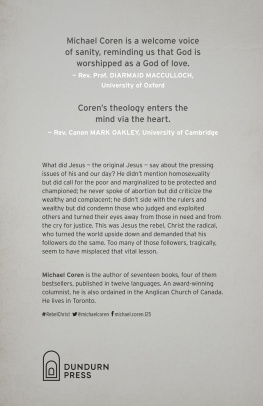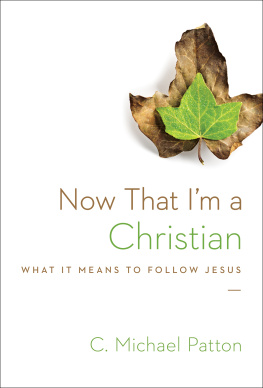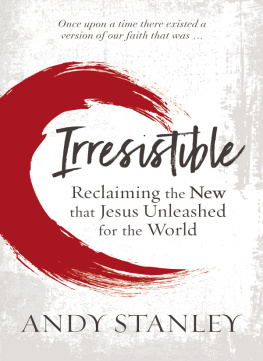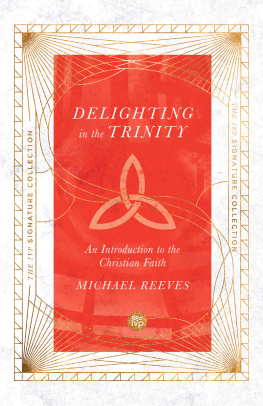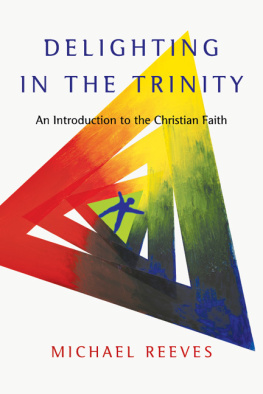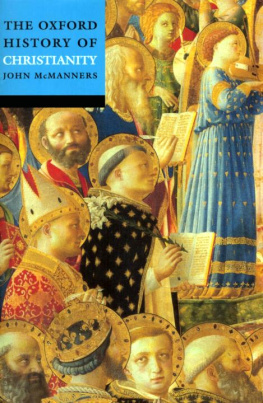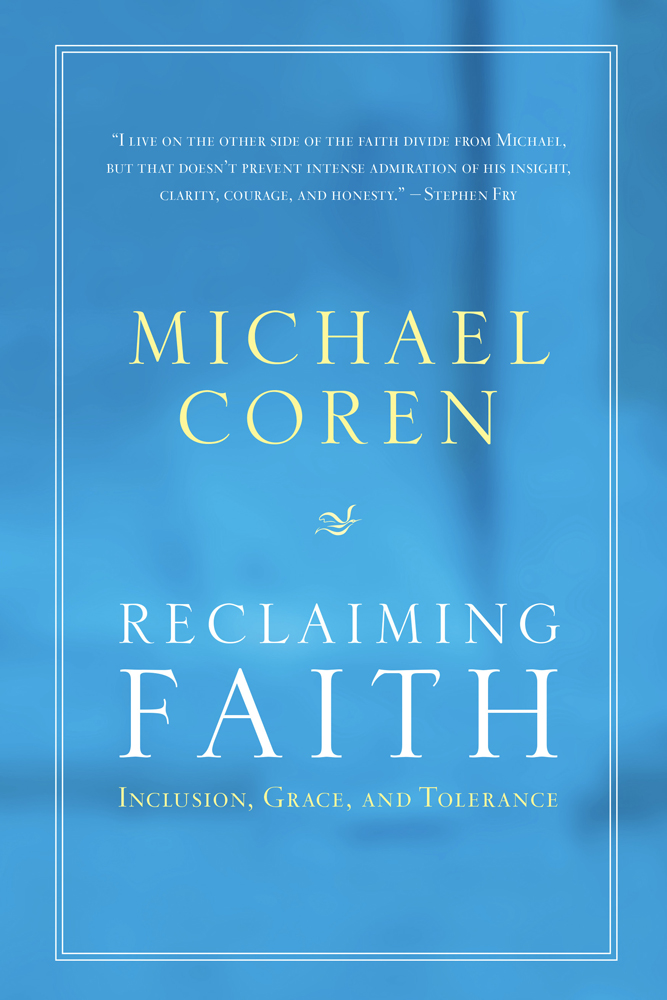Introduction
This is a collection of articles and columns from a number of magazines and newspapers from the past five years, all of them about faith. To be more specific, they are about my faith, which is Christianity. To be even more precise, a liberal and Catholic interpretation of Christianity which in my case has led me to the Anglican Church. The prism through which I view the world is a Christian one, based both on and in my relationship with Jesus Christ. That language may be jarring to the general reader but it is nevertheless true. Sometimes these columns are directly pertinent to what it means to be a Christian, sometimes I analyse various issues and challenges within the Church, sometimes comment on the secular world but from a Christian point of view.
Contrary to what some people think, there is an appetite for such work, as the responses to my columns have revealed over the years. Nor are these numerous responses only from Christians, but actually most from agnostics, doubters, and even quite militant atheists. Some of them are, of course, critical and even angry and sometimes for good reasons but most are curious, intrigued, and even supportive. I like to think that I am an informed writer, and on my better days I may even be intelligent, but whatever my failings and weaknesses, I am always honest. That seems to appeal to people, whatever their faith or lack thereof. I am not trying to convert people or to proselytize, at least not in a direct manner! If someone is encouraged by my writings to inquire further or to be strengthened in their faith (and I know that this has happened) I am delighted. In the world of the polemic and the sound bite, especially when it comes to matters of religion, perhaps I can break the rhythm a little. I certainly hope so.
I also approach the issues with a radical Gospel message, one that by its nature is progressive. I look neither left nor right but up, yet it cannot be denied that a faith that demands change cannot by definition be on the side of an unjust status quo. This is surprising to many readers, who have been beaten over the years into assuming that Christianity is right wing and even reactionary. I dont blame them at all for this and Im even a small part of the problem. Until around six years ago and this is something I cover in my columns so wont dwell on here I was part of that conservative approach. The theme and recurring message of my work now, and one that I hope is reflected in this book, is that Christianity is a forward-looking, liberating, and even revolutionary belief system that obliges us to question power and authority and to dream new dreams, centred on justice, peace, kindness, and hope.
All of these pieces appeared in professional publications so were edited then, and the small amount of further editing that has taken place for this book is minimal I believe that a writers work should stand in its original form; it would somehow be unfair or cheating to change something with hindsight. Some of the themes are repeated and perhaps even some of the phrases, but this is inevitable. There are only so many ways to explain, for example, what the Bible says about lgbt + people, or the way we should treat the poor or marginalized.
I would like to thank the editors at Macleans, The Walrus, the Toronto Star, The Globe and Mail, iPolitics, The United Church Observer, and cbc Opinion for publishing my writing and for having an interest in issues that matter so very much, but are too frequently neglected or rejected. They often improved my work, but I, of course, take full responsibility for everything written in this book. I also want to thank my teachers and colleagues at the Divinity School at Trinity College, University of Toronto, where I spent three years studying for a Master of Divinity, graduating in May 2019 . The symbiotic relationship between the academic study of faith and religion and journalistic commentary on those issues is severely undervalued, and its been a privilege and a pleasure to have a foot in both camps, as it were.
Thanks also to the Anglican Church of Canada and the Diocese of Niagara while my words are entirely my own and I do not speak in any way or manner for the Church or the diocese, both places have become for me a free and safe venue for spiritual growth and evolution. To my friends in Canada and the U.K., you know who you are, I will be forever grateful and always devoted.
Jesus, Me, and the Way It Ought to Be
The Walrus , July 21, 2015
TEN YEARS AGO , in July 2005 , the Canadian government made same-sex marriage the law of the land. Various provincial courts had recognized marriage equality, but now it had parliamentary weight and royal assent. There was no turning back. As with all good laws, Bill C - , or the Civil Marriage Act, largely affirmed what most people already accepted as self-evident: that the rights and obligations of matrimony apply to two men or two women as much as they do to a man and woman.
It is only a matter of time before the United States as a whole follows Canadas example. Whereas a decade ago no viable Republican candidate could even flirt with supporting the idea, today we have Marco Rubio and Jeb Bush explaining that while they still oppose marriage equality, they nevertheless would attend a gay or lesbian wedding if someone they cared for were involved.
All of which is to say: a decade on and quite a bit has changed, including me.
This past February, a conservative Roman Catholic blog, Contra|Diction, gave me perhaps my best headline ever: Michael Coren Complicit in Destruction of Souls Who Practice Homosexuality, Pt (Im still waiting for part two). It was one of countless posts, tweets, and articles that have condemned me for coming out in favour of same-sex marriage. Ive also been fired from columns that I wrote for years, been banned from various Catholic TV and radio stations, had speeches cancelled, and been accused of cheating on my wife. My children have been called gay, and I have been compared to a child molester and a murderer.

